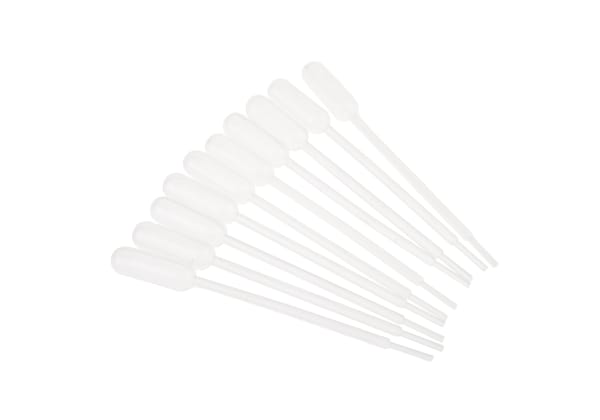- Published 20 Nov 2023
- Last Modified 20 Feb 2024
- 8 min
Laboratory Equipment
From essential safety gear to indispensable devices and glassware, explore the world of laboratory equipment. Ensure your workplace is well-stocked and productive, regardless of your scientific field.

If you work in a laboratory setting, you understand the significance of having the right tools at your disposal. Whether you're in a physics lab, a chemistry lab, or an electronic lab, the importance of appropriate laboratory equipment cannot be overstated. After all, the quality of your experiments may hinge on the laboratory equipment you employ.
In this guide, we'll delve into common equipment in a science lab, from safety gear to essential devices, funnels, and glassware. We'll cover all the essentials you need to create a safe and effective laboratory environment.
Lab Safety
Ensuring the safety of all personnel in a laboratory is paramount. Here are some essential laboratory safety equipment items:
Lab Glasses
Lab glasses, or safety goggles, are indispensable for protecting your eyes. Laboratories often involve various hazardous materials and equipment, including chemicals, glassware, heat sources, and mechanical devices. Accidents can happen, and any of these elements can pose a threat to your eyes. Safety glasses shield your eyes from chemical splashes, flying debris, and other eye hazards.
Always opt for high-quality, scratch-resistant lenses to ensure clear vision. It's also imperative to ensure that safety glasses meet relevant safety standards and regulations.
Lab Coats
Lab coats play a crucial role in ensuring safety, preventing contamination, and maintaining cleanliness in the work environment. They provide a protective barrier between you and your clothing and potential hazards like hazardous materials and potentially harmful chemicals.
Lab coats should be made from a durable and chemically resistant material, and their design should cover the entire body to minimise skin exposure.
Nitrile Gloves
Nitrile gloves are essential in laboratories due to their chemical resistance, allergen-free nature, durability, comfortable fit, and compliance with safety standards. Their use helps ensure the safety of laboratory personnel and the integrity of experimental procedures.
Gloves are a must for protecting your hands from chemicals and hazardous materials. Nitrile gloves offer excellent resistance to a wide range of substances and are also a suitable alternative for latex
Eye Wash
Laboratories often handle various chemicals and materials that can pose eye safety risks. Despite precautions, accidents can happen. Having eye wash stations strategically located ensures that individuals can access them quickly in emergencies.
Eye wash stations are crucial in the event of accidental chemical exposure to the eyes as they allow immediate and accessible first aid provision. These stations should be equipped with a steady stream of water to flush the eyes, providing immediate relief and minimising damage.
Emergency Shower
Emergency showers are essential in laboratories to mitigate the immediate effects of chemical exposure, provide first aid, comply with safety regulations, and contribute to an overall culture of safety within the laboratory environment.
For severe chemical spills or skin exposure, an emergency shower can provide quick and thorough drenching to minimise injury and chemical absorption. Emergency showers provide a quick and continuous flow of water, which is crucial for diluting and washing away chemicals that may cause burns or irritation. Additionally, the prompt use of emergency showers can help prevent or minimise chemical burns and injuries, offering initial first aid until further medical attention is obtained.
Lab Devices
Laboratory devices are essential for conducting experiments and analyses effectively. Here are some of the most common ones:
Bunsen Burner
The Bunsen burner is a classic piece of chemistry laboratory equipment that is relatively simple to use and requires minimal setup. They are versatile heating devices that produce a controlled open flame of adjustable size. This flexibility makes Bunsen burners suitable for a wide range of laboratory applications, including heating, sterilising, and conducting experiments that require controlled heat.
Bunsen burners provide a relatively uniform and direct heat source, which is critical for certain laboratory procedures. The flame can be directed at a specific area or object, ensuring even heating and reducing the risk of overheating or damaging delicate materials. They can also produce different flame types depending on the air-to-gas ratio. This includes a luminous flame (fuel-rich), a non-luminous flame (stoichiometric), and a blue flame (air-rich).
Microscope
Microscopes come in various types and are used in a wide range of scientific disciplines. They allow you to observe specimens at a microscopic level, making them indispensable in fields like biology, pathology, and material science.
Microscopes provide high resolution, allowing scientists to observe fine details and structures within a sample. This is particularly relevant to biological research, for example. However, microscopes are also extensively used in clinical laboratories as well as in forensic science, quality control, research and discovery, and the education sector.
Lab Hot Plate
Lab hot plates are essential and versatile devices in laboratories due to their ability to provide controlled and even heating. They are commonly used to heat glassware, liquids, and other substances.
Hot plates contribute to the success of various experiments, processes, and quality control procedures across different scientific disciplines. They allow researchers to maintain specific temperature conditions and prepare samples by heating them in a convenient, efficient, and portable way.
Magnetic Stirrer
A magnetic stirrer is a time-saving tool that automates the stirring of liquids. It's essential in chemistry and biology labs for mixing solutions and ensuring an even distribution of substances. Magnetic stirrers enhance laboratory efficiency, precision, and safety, making them an essential tool in various scientific disciplines.
These devices use a rotating magnetic field to drive a stir bar placed in a liquid. This creates a swirling motion that ensures thorough mixing of liquids. They allow precise control of stirring speed and can be programmed to operate at specific speeds and durations.
Lab Water Bath
A laboratory water bath is essential for maintaining a stable, constant, and controlled temperature in water. This is crucial for tasks like incubation, enzyme reactions, and tissue culture, where precise temperature control is necessary.
Some materials and samples are sensitive to direct heat, and a water bath provides a gentle and indirect heating method. This is particularly true when working with delicate biological samples or flammable substances that might otherwise degrade or ignite at high temperatures if heated by an open flame.
Lab Glassware
Laboratory glassware plays a crucial role in a wide range of experiments. Here are some common items:
Beakers
Beakers are used for measuring and mixing liquids. They are designed with a lip that makes pouring liquids easy and minimises spills. The flat bottom provides stability, reducing the risk of tipping over. They typically have graduated markings on the sides, allowing scientists to accurately measure volumes. This is crucial in many experiments where precise measurements are necessary. Additionally, the cylindrical shape of a beaker makes it easy to observe reactions and changes within the liquid.
Beakers are fundamental tools in a chemistry lab and serve many purposes. However, it's important to note that they are not suitable for all laboratory operations.
Test Tubes
Test tubes are practical and versatile, ideal for holding small quantities of substances. The design and properties of test tubes make them indispensable tools in laboratories for a wide range of tasks, from basic sample containment to complex chemical reactions and analyses.
Quality test tubes are heat-resistant and can be easily placed in a water bath or directly heated. They can also be easily organised and stored in specially designed racks, as well as being compatible with centrifugation equipment.
Other Physics and Lab Equipment
In addition to the equipment mentioned above, specialised laboratories may require other instruments and tools tailored to their specific needs. These can include specialist laboratory equipment like spectrometers, oscilloscopes, and centrifuges, which are commonly found in physics and electronic labs.
These additional instruments cater to the diverse needs of specialised laboratories, enabling researchers to conduct precise and advanced experiments across various scientific disciplines. The choice of equipment depends on the nature of the research and the specific requirements of the experiments being conducted.
Summary
Having the right science laboratory equipment is essential for maintaining a safe and efficient workspace. From safety gear to essential devices and glassware, every item plays a crucial role in conducting accurate and reliable experiments. Prioritising laboratory safety and using appropriate scientific lab equipment is the key to successful and worry-free research and experimentation.
With the right equipment and safety measures in place, your laboratory can be a hub of scientific discovery and innovation. So, equip yourself for success and take your research to new heights with the best laboratory equipment available.


